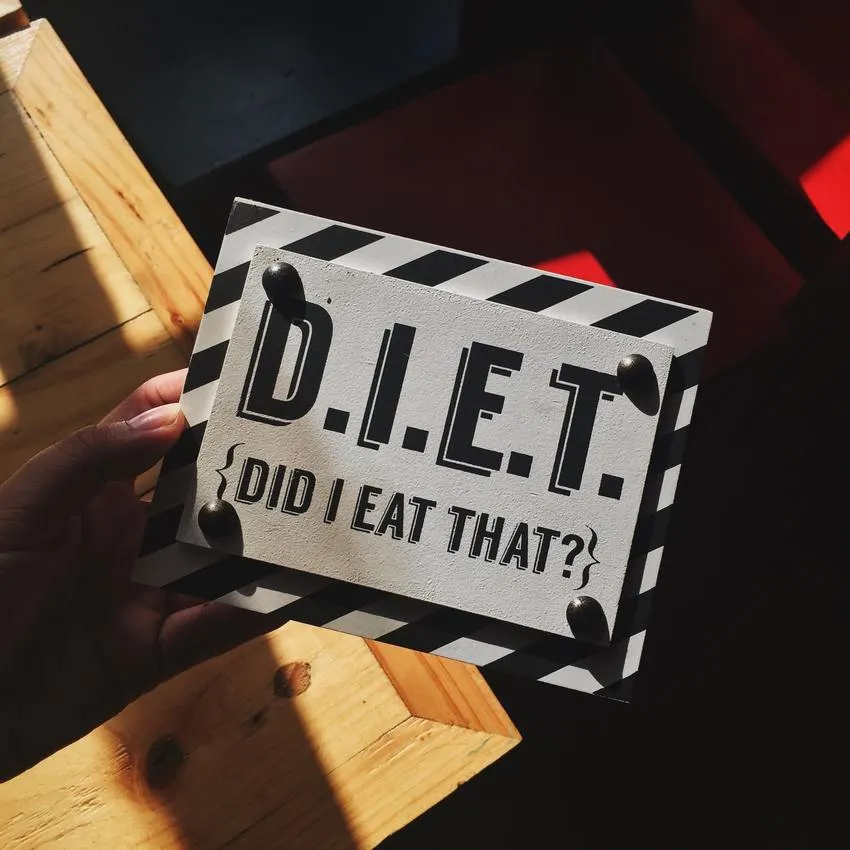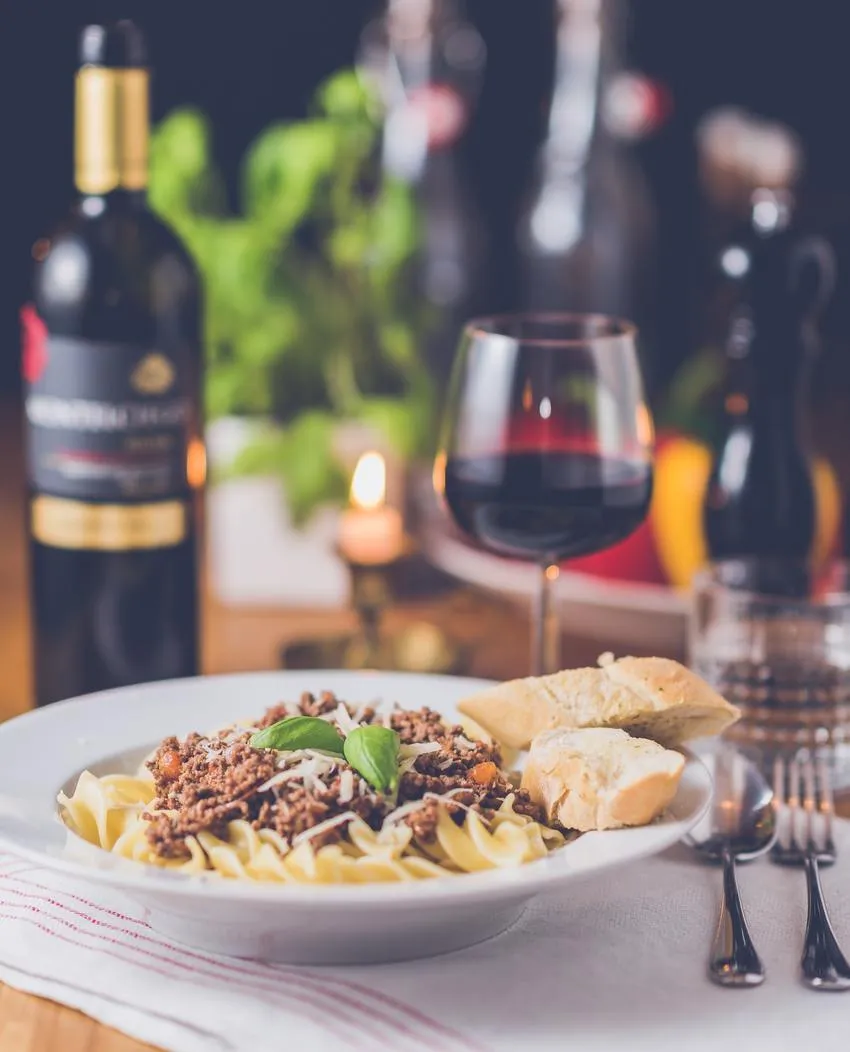Benefits Of Finishing Dinner Before 7 Pm While Fasting Intermittently
'Being fit doesn't mean having a slim figure but it means to be healthy and active.'
I held on to this and decided to follow a timed-based diet. Everyone needs a written diet plan in hand to strictly follow it. But it doesn't depend on the written diet plan. You should have the will to follow it and make it work. It would be so easy if losing weight was just about reducing calorie intake! A diet plan works when you exercise and work out.
I am a student whose schedule doesn't allow much time for exercise. Hence, exercising on the go is the only option. While this wasn't helping I decided to stop eating after 7 P.M.

Eating 3 hours before sleep has many advantages:
- It helps in digestion
- Helps you sleep better
- The body doesn't bloat
- Helps in weight loss
- Reduces the risk of various health disease
- Improves mood and energy levels
That's what I'm talking about. It's been years I've been following this routine and my body feels better. Not eating after 7 P.M. until morning breakfast is a concept close to intermittent fasting. I fast for about 14 hours.
What do I eat?
I eat everything. There are no restrictions on my diet. Some days I'm eating salad for lunch and cheese pizza for dinner. There is a balance in the routine that helps me keep control of my calorie intake. When you're dieting based on time, you should keep 'mindful eating' in mind.
If you can't resist taking a tour of the fridge before sleeping, eating early dinners won't help. A lot of people tend to eat highly saturated food right before sleeping and usually skip breakfast. This should be avoided to keep fit and energetic. For me, breakfast is very important which helps me kick-start the day. Be it corn flakes with milk or wholesome oatmeal, I enjoy my breakfasts.
While the concept of intermittent fasting suggests skipping breakfast and eating lunch, snacks, and dinner in an 8-hour window, I break that rule and include 3 hours more in my window for my breakfast. This generally doesn't change much. 'Mindful eating' helps me reduce my snacking and have light dinners.
What is Intermittent Fasting?
One of the world's most popular health and fitness trends - intermittent fasting is an eating pattern where you cycle between periods of eating and fasting.
There is no specific way of following this lifestyle. One can choose a time of the day when they want to eat and when they want to stop eating. There are no rules defined and studies show that this can help in weight cause, improve metabolism, and protect against disease for living a longer life.
This diet does not say 'what to eat', it focuses on 'when to eat'. This is why you should care.
You might wonder that you fast every day while asleep but intermittent fasting is a little more than fasting while sleeping. The most common format is called 16:8. Here, you fast for 16 hours and eat in the 8-hour window. You can choose those 8 hours depending on your daily schedule. Usually, people have their 8-hour eating window from noon to 8 P.M.

Intermittent fasting keeps me energetic throughout the day
You might think if you're consuming fewer calories or fasting for long hours, how can I feel energetic? Well, that's the beauty of this routine. Eating foods that contain proteins and energy, can easily help you get through the day.
Additionally, if you exercise regularly, you stay active and full of power all day.
Moreover, eating all day can also make you feel lethargic. This can affect your health and make you feel less productive. To feel active and fresh, you should be prepared to drink lots of water and eat healthy food.
Can anybody follow intermittent fasting?
Fasting for 14 -16 hours including sleep time is not for everyone. If you are a young individual who works or studies without any health issues, intermittent fasting can prove to be the best routine for you. I'm sure this lifestyle will bring a significant change to your life.
For some who are on medications, very young kids or older citizens, or even pregnant women, intermittent fasting can be difficult. As medicines demand you to eat at particular intervals, it is not recommended to fast for long hours. However, you can try limiting your calorie intake to lose weight.
Dinner dates and parties are rule-breakers

Going out to a restaurant for a date or party usually happens after 8 P.M. No one would agree to an early dinner outside. Such get-togethers end around 10 P.M. or even close to midnight if desserts and drinks are involved.
Following a rigid guide to not indulge after 7 P.M. can be a barrier when you have a date. What will do then?
Well, just like cheat days, such occasions can be allowed in a rigid guide. But you need to take care of what you are consuming and how much you are consuming. Do not refrain from eating anything but reduce the quantity. In this way, you won't return to your home with the guilt of not enjoying the scrumptious food at that fancy restaurant.
As I've been trying this for a very long time, I can assure you that following a strict routine and mindful eating actually works. Along with mindful eating, you need to exercise to stay active and keep fit. With simple steps like these, you will achieve your goal of losing weight soon.
Opinions and Perspectives
Would be interesting to see how this approach affects different age groups differently. Anyone over 50 having success with this?
Love how this focuses on timing rather than excessive food restrictions. Makes it feel more like a lifestyle than a diet.
The article could have emphasized more how individual results may vary. What works for one person might not work for another.
This approach has helped me be more mindful about my eating habits in general. I actually think about when and why I'm eating now.
Wondering if anyone else has noticed their coffee intake decreasing since starting this? I need less caffeine now.
Been doing this for six months and my evening energy levels are much better. No more post-dinner slumps!
The flexibility in food choices while maintaining the timing window makes this so much more sustainable than strict diets.
Great point about breakfast being important. Too many IF articles push breakfast skipping without considering individual needs.
I combine this with meal prep on Sundays. Makes it much easier to stick to the schedule during busy weekdays.
Finding this harder to maintain in social situations than I expected. Any tips for navigating dinner invitations?
Never thought about the connection between early dinner and better sleep. It's so obvious now that I think about it.
Would love more information about how this affects women specifically, especially during different phases of the menstrual cycle.
The success seems to be in the consistency rather than perfection. I aim for 80% compliance and it's working well.
Really appreciate the realistic approach to social situations. No diet should make you feel isolated from friends and family.
What about morning workouts? I need to eat right after but that would shrink my fasting window significantly.
I've adapted this to a 8 PM cutoff instead of 7 PM. Still getting benefits but works better with my schedule.
The article could have mentioned more about the psychological benefits. I've noticed improved self-discipline in other areas of life too.
Has anyone found their social life impacted by this schedule? I'm finding it tricky to maintain friendships that revolve around dinner.
I appreciate that they mentioned it's not suitable for everyone, especially those on medications or with specific health conditions.
The mindful eating aspect has helped me more than the timing. I actually pay attention to my food now.
They should have addressed seasonal variations more. Eating at 7 PM is very different in summer versus winter.
What about athletes? I work out late and need post-workout nutrition. How would this work?
I find it harder to stick to in winter when it gets dark early. My body seems to want dinner later then.
Interesting point about the 14-hour window versus the traditional 16:8. Makes it seem more achievable for beginners.
Anyone else notice their grocery bills going down since starting this? I'm spending less on snacks and random food items.
The part about exercise being important alongside timing restrictions really resonates. Can't just rely on eating windows alone.
Yes! I feel so much sharper in the morning meetings now. Used to be foggy until noon before starting this.
Wonder if anyone else has noticed improved mental clarity in the mornings? That's been my biggest unexpected benefit.
My doctor actually recommended this approach for my GERD. It's been a game-changer for my sleep quality.
I've found this eating pattern really helps with my midnight snacking habit. When I know the kitchen is closed at 7, I don't even think about it.
The health benefits mentioned are compelling but I'd love to see more scientific references backing these claims.
Focus on nutrient-dense foods and make sure each meal is well-balanced. I actually find it easier to maintain proper portions this way.
I'm intrigued by the concept but worried about getting enough calories in a shorter window. Any tips?
The article makes some good points but seems to oversimplify the challenges of maintaining this schedule with a busy lifestyle.
My go-to is a big salad with protein for lunch and a balanced but lighter dinner before 7. Keeps me satisfied through the fasting period.
I wish the article had included more specific meal suggestions for the eating window. Anyone care to share what works for them?
Actually, there's solid science behind IF. It's not just about skipping meals but optimizing your body's natural metabolic cycles.
Not sure I buy into the whole IF trend. Isn't it just skipping meals with a fancy name?
The point about drinking lots of water is crucial. I've found it helps me distinguish between actual hunger and just being thirsty.
I appreciate how the article emphasizes mindful eating alongside the timing aspect. It's not just about when you eat but also what and how much.
Totally relate to the weekday/weekend struggle! I've found that allowing myself one flexible day helps me stay strict the other six days.
Does anyone else find it easier to maintain during weekdays but struggle on weekends? I need tips for staying consistent.
The flexibility of this approach is what makes it sustainable. I love that they emphasize it's okay to break rules occasionally for social events.
I respectfully disagree with the breakfast part. Skipping breakfast works better for me with IF, and there's research supporting both approaches.
My digestion has definitely improved since I started eating earlier. And I'm surprised how quickly my body adjusted to the new schedule.
Has anyone noticed improved energy levels in the morning after implementing this? I'm curious about real experiences.
The part about dinner dates being rule-breakers is so relatable. I'm glad they addressed that because it was my first concern when reading about the 7 PM cutoff.
I started doing this three months ago and my sleep has improved dramatically. I used to have terrible acid reflux at night but not anymore!
What about those of us who work night shifts? I'd love to try this but my schedule is completely reversed.
While I agree with most points, I find it challenging to have dinner before 7 PM with my work schedule. Sometimes I don't even leave the office until 6:30.
The 14-hour fasting window seems much more manageable than the typical 16:8 protocol. I might actually be able to stick to this.
I've been struggling with late-night snacking for years. This article really opened my eyes about the benefits of early dinner. Going to try the 7 PM cutoff starting tonight!
